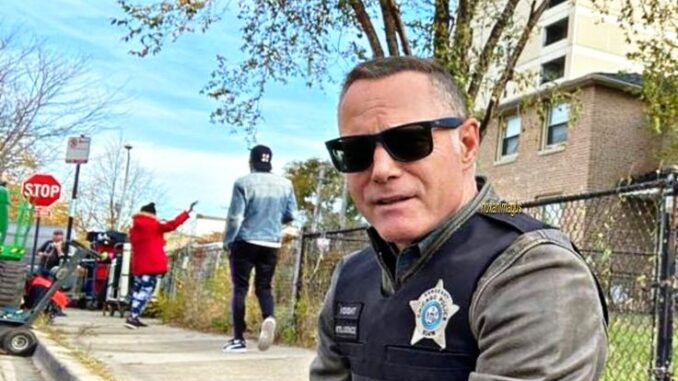Traditionally, Chicago Fire, Chicago Med, and Chicago P.D. have aired 22–24 episodes per season. However, in recent years, those counts were cut short due to COVID-19, writers’ and actors’ strikes, and budget constraints. The last few seasons have felt like rapid-fire snapshots of what could’ve been — abbreviated storylines, rushed resolutions, and cliffhangers that didn’t have the space to breathe.
Now, with the return to full-length seasons — reportedly 20+ episodes for each series — One Chicago is reclaiming its signature storytelling rhythm. NBC hasn’t confirmed the exact episode counts yet, but sources inside the network have hinted that each show could land somewhere between 20 and 22 episodes. That’s music to the ears of longtime fans who’ve been craving the slow-burn drama and character arcs the franchise was known for.
The answer lies in a mix of timing and opportunity. With industry strikes settled and production schedules finally back to normal, NBC is doubling down on its most reliable franchise. The One Chicago universe remains one of the network’s highest-rated properties, pulling in consistent viewership week after week. The shows also perform exceptionally well on streaming platforms, where fans binge-watch old seasons and new viewers discover the franchise for the first time.
NBC Universal is betting big on stability and familiarity in a time when the TV landscape is crowded with new content and short-lived hits. And if there’s one thing One Chicago does better than almost anyone else, it’s keep viewers coming back for more.

In recent years, shorter seasons forced showrunners to compress story arcs, leaving little room for quieter character moments or meaningful side plots. Fan-favorite dynamics — like Trudy and Mouch’s marriage, Dr. Halstead’s internal moral struggles, or Atwater’s battles with systemic injustice — were often touched on briefly but never explored fully.
With more episodes on the table, writers will have the freedom to:
- Develop long-running character arcs with real emotional payoff
- Reintroduce recurring characters and tie up loose ends
- Explore personal lives alongside professional cases
- Build up to high-stakes finales in a more organic, earned way
For example, Chicago P.D. might delve deeper into Voight’s increasingly blurred moral compass without having to rush to resolution. Chicago Med could give more screentime to newer doctors while still honoring legacy characters. And Chicago Fire could finally revisit unresolved relationship threads or long-teased promotions within the firehouse.
The fan response to the announcement has been overwhelmingly positive. Social media platforms were flooded with celebratory reactions, memes, and hopeful speculation about what might return now that there’s more room to breathe. “Finally! A season where we don’t have to skip emotional development just to get to the next emergency,” one Reddit user wrote. “Does this mean we’re getting more Cruz and Chloe scenes? Because I NEED that,” another fan posted on X (formerly Twitter).
Many are also hoping this opens the door for more crossovers between the three shows. With longer seasons, scheduling crossover events becomes more feasible — and that means more shared universe storytelling, a hallmark of One Chicago’s early years that fans have missed.
Longer seasons may also create space to bring back some familiar faces — even if only for a few episodes. Could Jesse Lee Soffer return as Jay Halstead for a special arc on Chicago P.D.? Might Yaya DaCosta’s April Sexton pop back into Chicago Med now that Ethan is gone? Could Chicago Fire revisit the fates of characters like Matt Casey or even Brett, depending on Kara Killmer’s rumored future?
Insiders say the cast and crew are just as excited about the extended seasons. Many actors have expressed a desire for more consistent storytelling — and more time to explore their characters without rushing from crisis to crisis. In a recent interview, Chicago Fire showrunner Andrea Newman said, “With more episodes, we get to stretch a little — go deeper. It’s a gift, honestly.”
Chicago Med executive producer Diane Frolov echoed the sentiment: “This opens up a lot of doors for emotional arcs, for team dynamics, and for giving each character their moment to shine.” Filming for all three shows is set to begin this summer in Chicago, with premiere dates expected in the fall. As we await new trailers and casting announcements, one thing is certain: One Chicago is back — bigger, bolder, and longer than it’s been in years. And for fans who have stood by through hiatuses, shortened seasons, and painful exits, this feels like the reward they’ve been waiting for.





